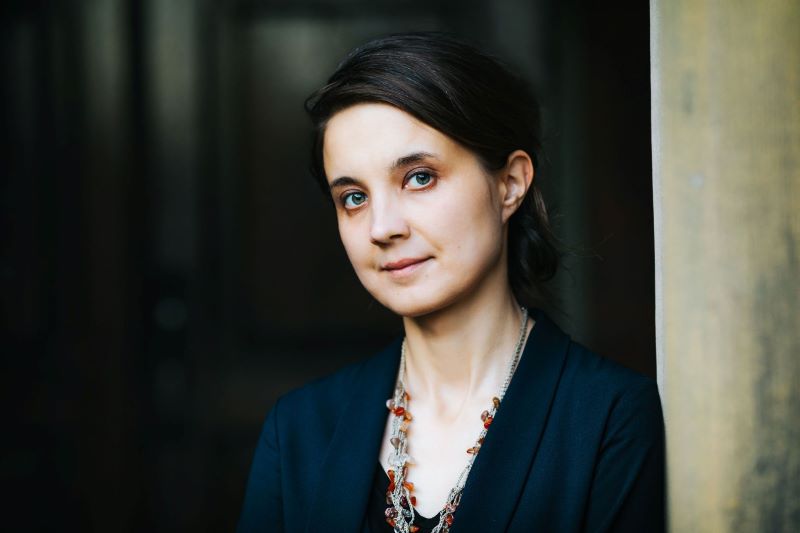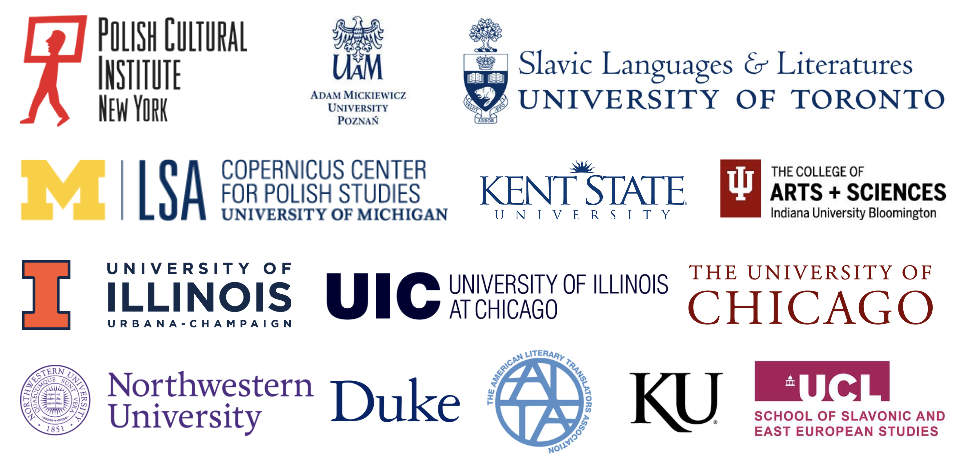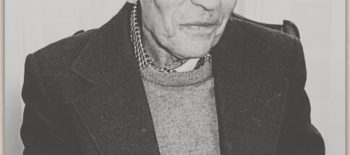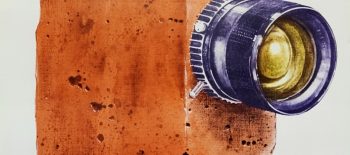The Sound of Modern Polish Poetry with Aleksandra Kremer (Harvard) – Encounters with Polish and Ukrainian Literature
S4E5 and all video recordings are available on our YouTube.
Encounters with Polish Literature is a video series for anyone interested in literature and the culture of books and reading. Each month, host David A. Goldfarb will present a new topic in conversation with an expert on that author or book or movement in Polish literature. More about the Encounters with Polish Literature series and the timeline.
How do we know how poetry should be read aloud? Sometimes the language itself might nudge us toward reading with a certain rhythm, pausing in certain spots, and the theme may suggest a tone of voice, but actors might read in different ways from poets themselves, and then we might ask how we should read when we have no idea how the poet originally interpreted their own work out loud, because they may have lived before the age of recorded sound and there are no written reports, or maybe they never gave public readings. If there are recordings of the poet reading, how much are we missing if we read the poem on the page without listening to them? Or should we read first and listen later, to see what the words suggest on their own without our hearing the poet’s inflection? And what if we don’t even like the way the poet reads their own work?
In this episode, we discuss these topics and more with Aleksandra Kremer (Harvard University), who recently published a book on the influence of audio recording on the performance and writing of poetry in Poland. How does the way we read, and the ways in which poetry has been read historically affect the ways in which poets write in different eras and contexts? We consider examples from Julian Tuwim, Czesław Miłosz, Aleksander Wat, Miron Białoszewski, and Tadeusz Różewicz.
To get the most out of this discussion, please load this page of links and be prepared to pause the video to listen to the audio excerpts as they are mentioned.
Recommended reading and listening:
Aleksandra Kremer, The Sound of Modern Polish Poetry: Performance and Recording after World War II (Cambridge: Harvard University Press, 2021).
If you would like to experiment with phonetics software mentioned in the episode, go to “Praat: doing phonetics by computer.”
For the full text of Julian Tuwim’s poem discussed early in the episode, “Grande Valse Brilliante,” with a translation by Maja Trochimczyk, the work by Chopin that inspired it, and a rendering of the poem as a song (which changes the perspective of the poem) by cabaret actress, Ewa Demarczyk, see here.

Aleksandra Kremer is John L. Loeb Associate Professor of the Humanities in the Department of Slavic Languages and Literatures at Harvard University. Her main area of research and teaching is Polish literature and culture, with special interests in modern poetry, sound studies, cultural history, migration, and Holocaust memory. She holds a doctorate in literary studies from the University of Warsaw and an MPhil in European literature from the University of Cambridge. Her first book, Przypadki poezji konkretnej: Studia pięciu książek (The Twists and Turns of Concrete Poetry: Case Studies of Five Books, IBL PAN, 2015), discusses the role of book series and book design in the development of the concrete poetry movement in Europe. Her second book, The Sound of Modern Polish Poetry: Performance and Recording after World War II (Harvard University Press, 2021), discusses the role of poetry readings and audio recordings for postwar Polish poets. The book received the 2022 Kulczycki Book Prize in Polish Studies from the Association for Slavic, East European, and Eurasian Studies, and Honorable Mention for the 2022 Waclaw Lednicki Award in the Humanities from the Polish Institute of Arts and Sciences of America. Currently, she is working on a new book project about Polish poetry’s responses to the Holocaust, focusing on poems from the 1940s. She received grants and fellowships, among others, from the University of Cambridge (2009), the National Science Centre in Poland (2011, 2015), Harvard’s Davis Center (2019), and the US Holocaust Memorial Museum (2022).
Bartek Remisko, Executive Producer
David A. Goldfarb, Host & Producer
Natalia Iyudin, Producer
Photo: Aleksandra Kremer
Image courtesy of Aleksandra Kremer
Lead image: Book cover courtesy of Harvard University Press





